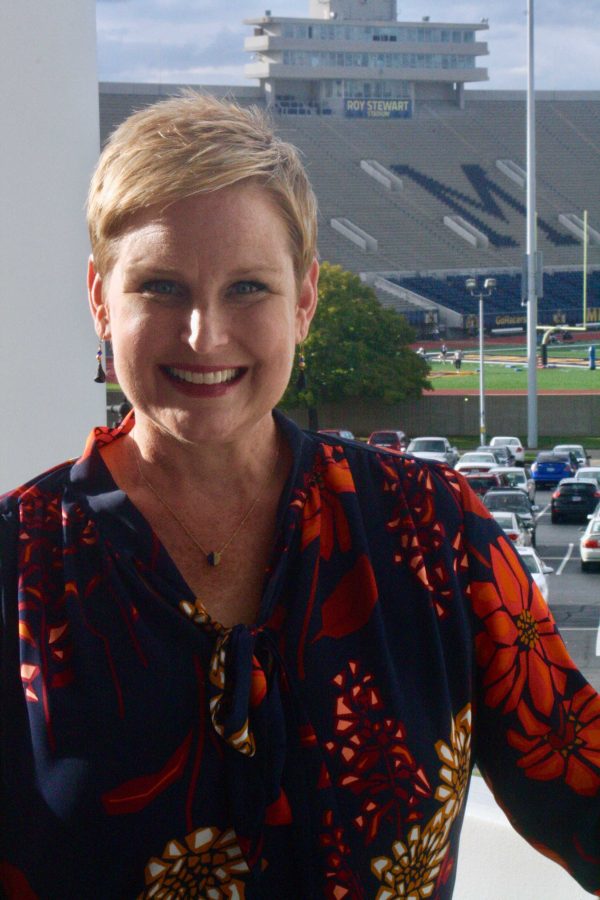Amy Krazl
Contributing writer
akrazl@murraystate.edu
“The most important thing to know is that breast cancer is so treatable in most cases,” she said. “Get mammograms regularly. Just do it.”
This is Director of Alumni Relations Carrie McGinnis’ message to women as last year, she received a scary diagnosis: breast cancer.
As October ushers in Breast Cancer Awareness month, breast cancer survivors speak out about the importance of screening and detection, because it is these medical exams that have saved their lives.
Fortunately, McGinnis said doctors caught her cancer in the early stages. She had four lymph nodes removed and portions of her breast tissue, but today she is celebrating being cancer free.
Though a cancer diagnosis is frightening, McGinnis was not going to let breast cancer defeat her morale. She said a support system is critical, and her friends and family rallied behind her.
“It was a rollercoaster of emotions… But the most important thing, I think, was having a positive attitude,” McGinnis said. “My husband and family were so supportive.”
Murray resident, Alice Rouse, was diagnosed with breast cancer in 2006. She was not going to let cancer take her life. After a double mastectomy, chemotherapy, radiation, and several complications, Rouse is cancer-free today.
“By the grace of God I am here,” Rouse said.
During her breast cancer fight, she said she clung to Jeremiah 29:11, which says, “For I know the plans I have for you, declares the Lord; plans to prosper you and not to harm you, plans to give you hope and a future.”
“I still claim that verse today… It’s faith that saw me through,” she said.
Like McGinnis, Rouse emphasized the importance of encouragement and support.
“My family was my biggest support,” Rouse said. “My girlfriends were also so supportive. I had about six girlfriends who went with me to get my haircut, and my husband took me to all my appointments. But I didn’t let him in, I wanted to be strong for myself. I wanted to put on the best front that I could. It was important to keep things as normal as possible.”
Breast cancer does not discriminate. Anyone could receive a breast cancer diagnosis.
Debbie Wentler, quality management mammographic technologist for CoxHealth and mammographic lecture consultant, said women need to make it a habit of getting checked early for breast cancer, despite “inconvenient checkups” or “uncomfortable exams.”
“The biggest statistic that always surprises women is that seven out of ten never had a family history [of breast cancer],” Wilson said. “They think, ‘If I don’t have a family history, I’m not at a high risk.’”
According to Susan G. Komen’s website, women in the United States have a 1 in 8 lifetime risk of being diagnosed with breast cancer.
“It’s not just in October that you need to think about [breast cancer],” Rouse said.
Rouse encourages everyone to wear pink for the month of October in honor of breast cancer survivors and those who have fallen in their fight with breast cancer.
To volunteer or get involved with raising awareness for breast cancer, visit Cancer.org.




























































































